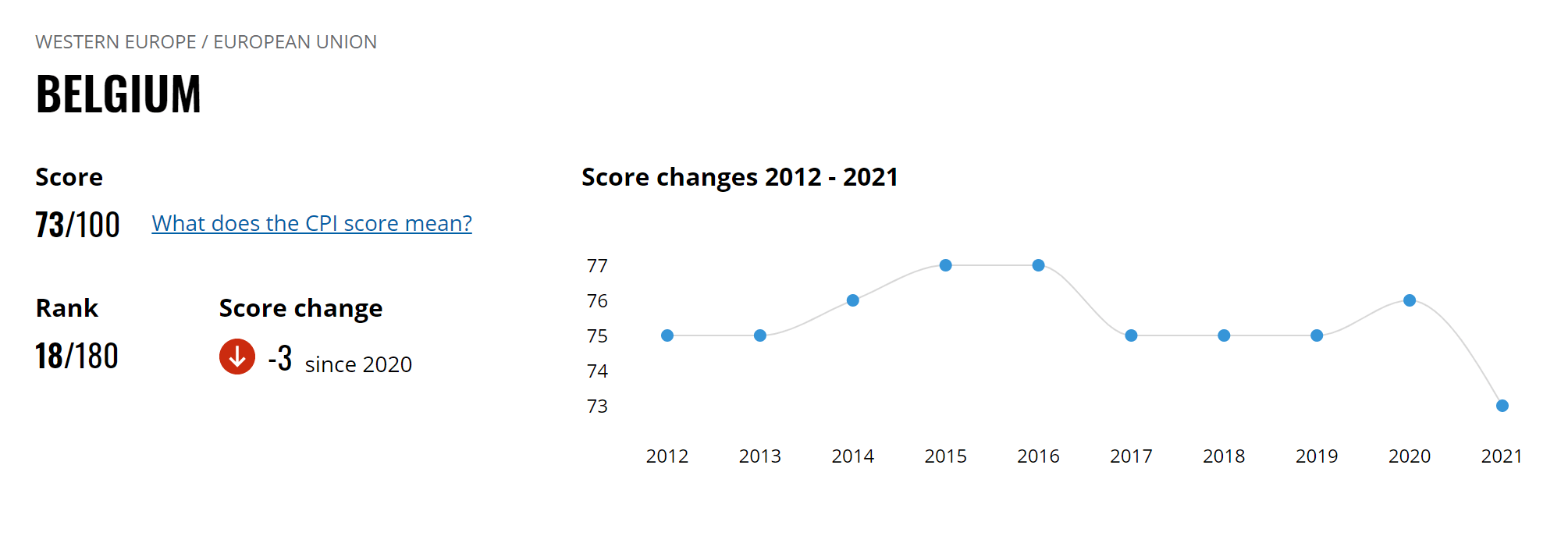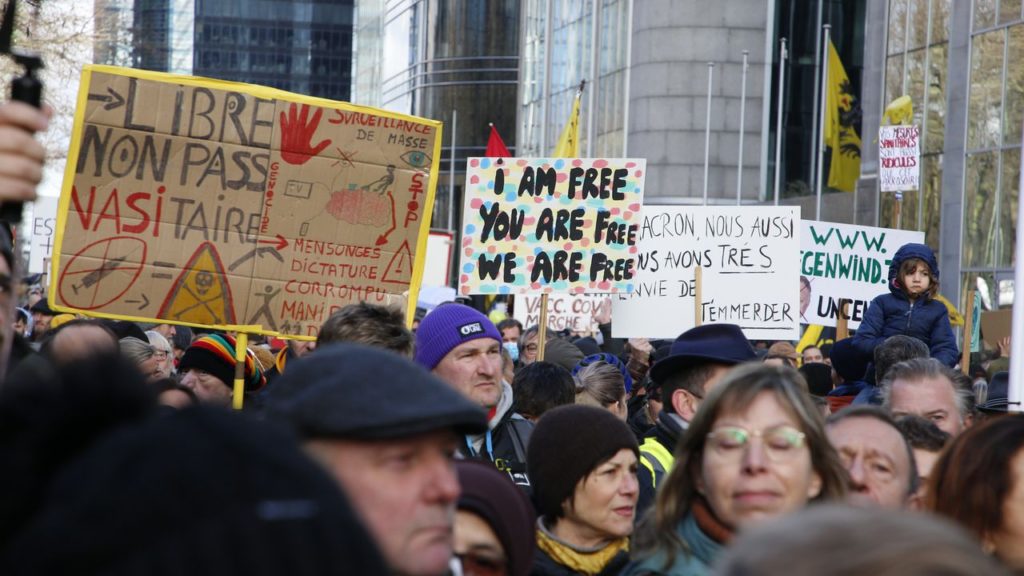Belgium dropped three points in the last year on Transparency International's 2021 corruption index (CPI), falling to 18th place on the list of 180 countries with a score of 73 out of 100.
“At the top of the CPI, countries in Western Europe and the European Union continue to wrestle with transparency and accountability in their response to COVID-19, threatening the region’s clean image,” the NGO's report found.
The three countries tied for first place on the index are Denmark, Finland and New Zealand, with scores of 88. These are also all in the top 10% in the world on the Democracy Index civil liberties score. Belgium came in 36th place on that list.
“Human rights are not simply a nice-to-have in the fight against corruption,” said Delia Ferreira Rubio, Chair of Transparency International.
“Authoritarian approaches destroy independent checks and balances and make anti-corruption efforts dependent on the whims of an elite. Ensuring people can speak freely and work collectively to hold power to account is the only sustainable route to a corruption-free society.”
Anti-corruption progress in Europe has stagnated
More than two-thirds of countries on the NGO’s list scored less than 50 points out of 100, and while Western Europe and the EU still topped the list in terms of being least-corrupt, Transparency International said progress there has stagnated.
“A worrying new normal is fast being established, as accountability and transparency measures neglected or rolled back during the COVID-19 pandemic remain unrestored, and public trust falls in the wake of procurement scandals,” the NGO found.
Related News
- The impact of support to rule of law reforms in Western Balkans must be increased, say EU auditors
- European Parliament wants to stop law suits intended to intimidate and silence journalists
- Romania’s Constitutional Court rejects primacy of European law
No major scandals from Belgium were highlighted, but the country has reached its lowest score since 2012 (the earliest comparable year of available data), a milestone it shares with countries like Botswana, Honduras, Mongolia, Nigeria, Serbia, South Sudan and Turkey.
 Scandals in neighbouring countries
Scandals in neighbouring countries
Germany’s face masks procurement scandal implicating MPs was noted when pointing out examples of corruption in Western Europe.
Belgium similarly saw scandal involving the face masks it bought for distribution to citizens, whose purchase is being investigated for fraud because two of the people involved are said to personally know each other very well.
The Luxembourg company the Belgian government bought the masks from is run by two French persons: a former football agent and an ex-restaurateur. The main shareholder is reportedly a Jordanian millionaire with an address in Malta, a holding company in the Cayman Islands, and a firm that finances film projects in the US. The masks were also said to contain toxic nanoparticles and the government later asked citizens to stop wearing them.
While Western European countries still top the Corruption Perceptions Index, there’s been no recent progress – and even some backsliding. This spells trouble. #CPI2021 https://t.co/WbhNCc8A8k
— Transparency International (@anticorruption) January 25, 2022
In the Netherlands (ranked 8th place on the index), the Court of Audit lodged a formal complaint against the Ministry of Health, Welfare and Sport after finding irregularities in nearly 3% of total obligations in the ministry’s COVID-19 spending, which amounted to €5 billion.
The objection was later withdrawn after the ministry presented an action plan for making improvements in its financial management.
Declines for Eastern European countries
Also noted was Cyprus’ so-called ‘golden passports’ scandal, in which wealthy foreigners were able to “purchase” citizenship through significant investments, allowing them access to the the rest of the EU.
Slovenia saw a decline in media integrity and freedom of peaceful assembly, falling to 41st place. Romania, Hungary and Bulgaria were the lowest ranked countries in Europe.
“In authoritarian contexts where control rests with a few, social movements are the last remaining check on power,” said Daniel Eriksson, Chief Executive Officer of Transparency International Secretariat.
“It is the collective power held by ordinary people from all walks of life that will ultimately deliver accountability.”

